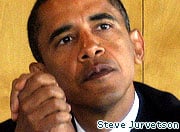The US Government is to pay out over $500,000 for legal costs to a family business that did not want to provide health insurance that covered abortion-inducing drugs.
The US Supreme Court backed the business, Conestoga Wood Specialties, in June last year. Last week lawyers and the US Government reached a settlement over the costs of the case.
Conestoga Wood, a furniture business run by a Mennonite family, was represented by three legal groups including Alliance Defending Freedom (ADF).
Disservice to taxpayers
ADF Senior Legal Counsel Matt Bowman said: “The government does a serious disservice to taxpayers when it pursues unjust laws that force many of them to defend their constitutionally protected freedoms.
“While this case is finally over, many others remain. We hope the administration will stop defending its indefensible abortion-pill mandate and end its waste of taxpayer dollars on a fruitless quest to force people to give up their freedom to live and work according to their beliefs.”
The case centred on the Affordable Care Act – known as Obamacare – which obliges employers to provide health insurance policies including ‘contraception’ which acts to destroy human embryos.
Free to work
Speaking after last year’s ruling, ADF’s David Cortman said the Supreme Court had “affirmed that all Americans, including family business owners, must be free to live and work according to their beliefs without fear of government punishment”.
At the time, Conestoga Wood’s CEO commented: “We wholeheartedly affirm what the Supreme Court made clear today – that Americans don’t have to surrender their freedom when they open a family business.
“As I said at the beginning of this lawsuit, this effort wasn’t just for Conestoga. We took this stand for others as well. The administration has gone too far in disrespecting the freedom of Americans to live out their convictions.”
Hobby Lobby
The Conestoga Wood legal case was consolidated with a lawsuit from arts and craft chain Hobby Lobby.
Hobby Lobby run by a Christian family welcomed last year’s decision, saying it allows them to continue operating “according to our principles”.

